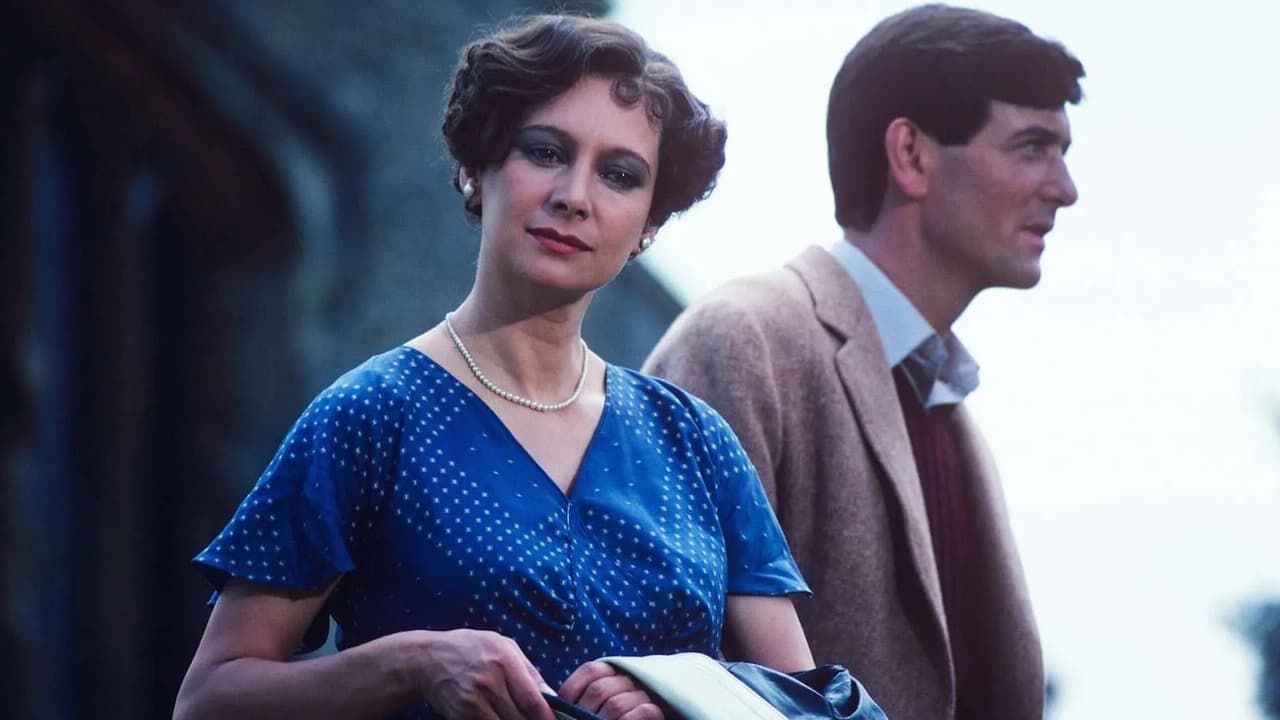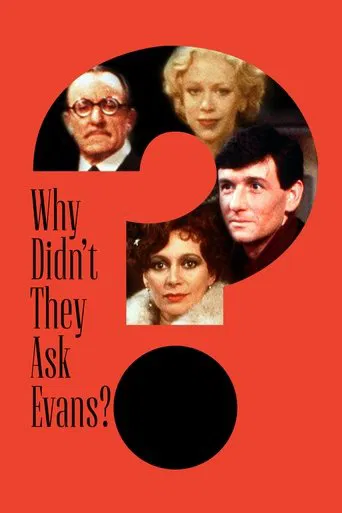

Takes itself way too seriously
... View MoreSelf-important, over-dramatic, uninspired.
... View Moregood film but with many flaws
... View MoreAmateur movie with Big budget
... View MoreWhy Didn't They Ask Evans? is not one of Agatha Christie's best books but when Christie wasn't quite at her best she knew how to make a mystery entertaining and engrossing and that is true of Why Didn't They Ask Evans? This 1980 TV version I can see, in the future and right now, is not going to please everybody. Some people will find it well made, diverting and classic Agatha Christie, others will find it contrived, long-winded and perhaps confused. Depends on your perspective, and perhaps if you're familiar with the story. This version of Why Didn't They Ask is not what I call perfect, there is one information strand that does feel thrown in, all too easy and underdeveloped. But the adaptation is leagues ahead of the 2009 version(as part of the ITV Marple series), which was all of the things that I have seen people criticise this version of being, even though that adaptation had great production values and a splendid Julia McKenzie, it wastes most of the supporting cast, is meandering pacing-wise and the ending was a mess.Back to this, it is very well-made, actually looking authentic without being too late-70s/early-80s with nice photography and costumes and sets that are both sumptuous and atmospheric. The dialogue is very faithful to Agatha Christie and helps to make the mystery interesting throughout, and the story, while paced slowly but appropriately, is both suspenseful and intricate, if seemingly implausible on first viewing. On this point, I do think this is an adaptation that is best to see more than once, then again I might be alone in this notion. I personally liked the cast, James Warwick and Francesca Annis are very likable and reminds one fondly of their Tommy and Tuppence, while John Gielgud- while not stealing scenes as seamlessly as in Seven Dials Mystery- is his usual commanding self. Joan Hickson also has a glorious and deliciously over-the-top cameo, but it is Eric Porter's alert and sometimes alarming Doctor that indeed steals the show.Overall, not perfect and not the most accessible of Agatha Christie adaptations(I also think Seven Dials Mystery, which had most of the cast from here in that, is better), but well-made and interesting with a good cast and far better than the later adaptation. 9/10 Bethany Cox
... View MoreWhy Didn't They Ask Evans? is a scene for scene adaptation of the very good Agatha Christie novel of the same name which runs to 3 hours. It is not paced in the way that most modern movies or television adaptations would be for that reason. Accordingly, it is best watched in one or two sittings. When given half a chance it is great fun.I've seen this film twice and it improved on the second viewing. The period character of the film, vaguely early '30's, is very good, and the film is chock full of veteran British character actors who give wonderful performances, among the most fun is Sir John Gielgud who plays Bobby, the male lead's father. Even more fun is a completely over the top cameo by Joan Hickson as a Mrs. Rivington. Hickson is of course the epitomal Miss Marple in the '80's and '90's television adaptations, but here she plays a hilarious and empty-headed society hostess to stunningly comic efect.All in all, a very engaging and faithful dramatization.
... View MoreSpoilers herein.I make a habit out of examining film adaptations of classic mystery novels for clues. I'm looking for clues about why the narrative works. There is a reason Christie is the best selling writer in history, even now as print runs are huge.I think I understand the primary mechanisms, how she engages the reader in a contest of wills. Usually, these don't translate well to film and we are given instead some puzzles with a surprise answer at the end.One approach is what was attempted here, just work through the book more or less as it is written. But that doesn't work either because the infrastructure of the imagination differs so between reading and viewing.Here the stretch of the mystery is too long for the reward. We'll know who the villain is soon enough just because of the theatrical mannerisms of the actors, and the rest comes across as `Hardy Boys' stuff. Add in some unbelievable coincidences (even for Christie), a Miss Moriarty Morphia and a little too pert Frankie and you'll see why this series wasn't continued.Ted's Evaluation -- 1 of 3: You can find something better to do with this part of your life.
... View MoreThis movie adaptation of an Agatha Christie novel is similar in feel to "The Seven Dials", and has a number of the same actors in it, but I found it inferior. The movie is quite long, but it still manages to leave several things unexplained by the end. The traditional "explanation" scene at the end, where the devious plans of the criminal(s) are laid bare, is oddly uninvolving, despite the fact that the heroine is alone in a big house, at the mercy of the killer. It seems to go on forever, and seems to be answering questions that no one really bothered to ask. Besides, there is one outrageous piece of information provided at this moment that the viewer could not possibly have known, and which is thrown in just to make things easier for the villains. I suspect this is the fault of the original book (Christie was not above tossing in a sort of deus ex machina, especially in her early books) but it leaves the viewer feeling cheated.Francesca Annis is a touch too smug and smooth in her portrayal of Frankie, and I found her "bright young thing" character grating after a while. Eric Porter, as the suspicious Dr. Nicholson, gives the best performance of the movie, both affable and alarming.
... View More